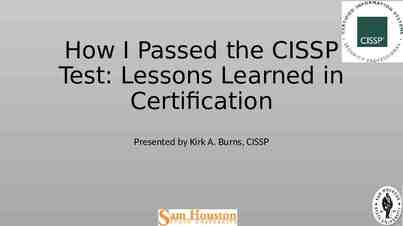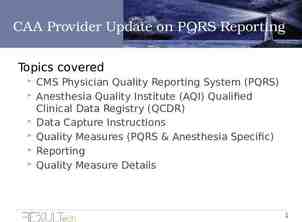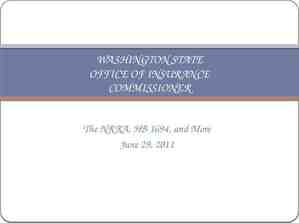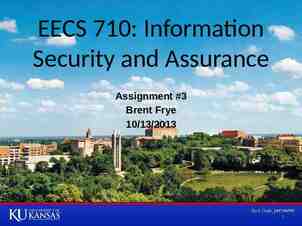Geriatrics Case Conference September 3rd, 2020
38 Slides6.19 MB

Geriatrics Case Conference September 3rd, 2020

This program is supported by the Health Resources and Services Administration (HRSA) of the U.S. Department of Health and Human Services (HHS) as part of an award totaling 751,695.00 with 0% financed with non-governmental sources. The contents are those of the author(s) and do not necessarily represent the official views of, nor an endorsement, by HRSA, HHS, or the U.S. Government. For more information, please visit HRSA.gov.

Finding the Right Housing Option for Patients with Dementia. Natalie Manley, MD, MPH

Hospice Home Health ILF Home ALF with or without dementia care unit Also includes Residential care homes (e.g. “Beehive homes” SNF/LTC with or without dementia care unit Independent Living Facility ILF Continuing Care Retirement Community Assisted Living Facility ALF Continuing Care Retirement Community CCRC Skilled Nursing Facility SNF Long Term Care LTC

ROOM and BOARD FINANCING Private pay, Sometimes Medicaid Waiver PRIVATE PAY ILF Home ALF Private pay Medicaid SNF/LTC

Geriatric Review Syllabus: 10th ed.

Home/Aging in Place There’s no place like home! https://www.ruralhealth.va.gov/vets/comm selfcare assemb.asp

Home-Service options Friends/Family Area Agency on Aging Aging and Disability Resource Center Home Health Services Private services-ie housekeeping, lawn services Meals on Wheels Senior Center Adult Day Services Clinic Case Managers/Social workers Medical/non-medical transport

Home-service resources https://homemods.org/directory-state/ne/ Finding government benefits: https://www.benefitscheckup.org/ Energy Assistance: https://liheapch.acf.hhs.gov/help Eldercare Locator https://eldercare.acl.gov/Public/Index.aspx VA’s Caregiver Support Line at 1-855-260-3274 https://www.ruralhealth.va.gov/vets/ca regivers-module19.asp

Adult Day Services http://www.carenebraska.org/list06 nebraska adult day care. htm

Companionship care/Home Care Services Provide: Companionship/supervision Medication Reminders May provide some hands-on assistance Housekeeping/cooking May provide transportation

Home-service payment Often private pay Medicare Medicaid Veteran Affairs Free Local community services Long Term Care insurance

Home Health regulations http://dhhs.ne.gov/licensure/Pages/Home-Health-Agencies.aspx HOME HEALTH-per Nebraska DHHS A home health agency provides skilled nursing care or a minimum of one other therapeutic service which includes physical therapy, speech pathology, occupational therapy, respiratory care services, home health aide services, social work services, intravenous therapy or dialysis services to a person in their permanent or temporary residence, other than a hospital or nursing home. Any HHA seeking Medicare certification is required to meet the Medicare Conditions of Participation (CoP) prior to certification. This includes compliance with the OASIS (Outcome and Assessment Information Set) collection and transmission requirements. Person must meet “Home-bound” criteria if Medicare is the payer Only lasts as long as the continued services can be justified. Does not provide 24/7 hands-on care

Geriatric Review Syllabus-ed. 10

PACE: Program for All Inclusive Care of the Elderly Interdisciplinary Primary care for frail elders with aim to help them age in place. The average PACE enrollee is 80 years old and has an average of 8 medical conditions and 3 ADL limitations; half of PACE participants have dementia. provides all inpatient, outpatient, and long-term care services to population that meets the level of needing long term care services. Mostly funded by medicare and Medicaid, rarely paid for by private insurance This team includes a physician (often a geriatrician), nurse practitioner, clinic and home-health nurses, social workers, physical therapist, pharmacist, dietician, and transportation workers. The hub of care is the PACE center, which provides adult day health care. Other care includes respite, transportation, medication coverage, rehabilitation (including maintenance physical and occupational therapy), hearing aids, eyeglasses, and a variety of other benefits. The program, at the discretion of the interprofessional team, has the flexibility to pay for

Health team goes to patient home to provide care and includes: Physician Nurse https://www.va.gov/GERIATRICS/pages/Home Based Primary Nurse Practitioner Care.asp Social work Psychology Pharmacist Therapy can be used in combination with other Home and Community Based Services.

Hospice—wherever you are If less than 6 month prognosis, hospice services may be enough to keep a person home. Outpatient Hospice provides a nurse a couple times a week, an aid a few times a week, social work, chaplain, bereavement, but does not provide 24/7 care

Independent Living Facility AKA: Senior apartments, retirement community, 55 community Apartments with - full kitchen in apartment - various services depending on the facility/community (eg dining, light house keeping, laundry, maintenance) - common areas and social activities Typically No staffing for assistance with Activities of Daily Living Additional care likely will come from home health or other services listed in prior slides

https://www.ruralhealth.va.gov/vets/resources.asp#dem https://www.ruralhealth.va.gov/vet s/caregivers-module19.asp

Thinking about transitioning to a facility? Autonomy Caregiver/ Surrogate Capacity Safety/Well Being

ALF-services/ capabilities Apartment, often without a full kitchen Services depend on the facility Can expect some hands-on assistance with ADLs (eg bathing) Help with medication administration During covid, they potentially have fewer visitor restrictions than LTC.

ALF-payment Room and Board: Private pay Medicaid waiver Long Term Care insurance Medical Care-via provider visits, home health, hospice, etc Medicare Private insurance Medicaid

ALF-regulations Depends on the state Much fewer regulations than long term care http://dhhs.ne.gov/licensure/Pages/Assisted-Living-Facilities.aspx

ALF-Memory Care An assisted-living facility which is an Alzheimer’s special care unit may apply for a memory care endorsement as provided in the Health Care Facility Licensure Act but shall not advertise itself as an endorsed memory care unit without such endorsement. http://dhhs.ne.gov/licensure/Documents/Facilities-HealthCareFacilities.pdf

Memory Care—Can be ALF or LTC Things to consider ALF memory care can not manage skilled needs like catheters, wound care LTC memory care can handle skilled needs Many ALFs can not provide hands on assistance with eating Therefore ALF memory care sometimes ends up not working out as a forever home

Memory Care—Can be ALF or LTC More things to consider Beautiful premises is nice but .that doesn’t tell you about the quality of care People with dementia need ability to wander around Access/REAL actual available access to the outdoors Single occupancy room is optimal Lots of activities with staff who are motivated to involve the less interested residents What is the antipsychotic, hypnotic, and anxiolytic use

Memory Care—Can be ALF or LTC Even more things to consider The staff working there will effectively be their new family What is the turnover in CNA staff? Those are the staff members who spend the most time/energy with the residents What dementia specific training does the staff get When touring, don’t look at the pretty marble floors look to see if the care staff are engaged with the residents, do the care staff seem happy, are they sitting their looking at their cell phones? Can the care staff tell you how they manage behaviors? ABC’s of behavior management

Residential Memory Care-ALF

Long term careservices Day to day supervision, medication management, ADL and IADL no or minimal assistance to full assistance, skilled nursing care and various levels of rehabilitation services (depending on the facility) https://www.medicare.gov/nursinghomecompare

Long Term Care Things to consider Single occupancy room is typically best Is there a separate locked memory care unit to allow for wandering? Does the separate locked area have easy/actual access to the outdoors? Consider all the factors mentioned in memory care slides

LTC-payment Room and board: Private pay Medicaid Medical care: Medicare Private insurance Medicaid Hospice

LTC-regulations Highly Highly regulated

Veteran communities

A word on COVID Food for Thought Imagine you have moderate dementia you live in this nice nursing home, you’ve adjusted to your caregivers and you’ve made some friends. You enjoy roaming the halls, playing card games, singing during chapel time, and sitting on the front patio. You LOVE when your grandkids come to visit and when they take you out to your favorite restaurant. Now, suddenly, you don’t exactly know why but you’re not supposed to come out of your room anymore, your favorite activities have stopped, the people who help you have been replaced with people without a face and muffled voices. Those replacements are always in a hurry they keep saying something about “staffing.” Your family comes and taps on your window, but they don’t come in. You miss seeing your friends at the lunch table you would love to have a hug you just don’t feel like eating When you come out of your room the faceless people keep asking you to put this thing over your face

COVID continued Now You just got back from the hospital .It was wonderful your family came to see you there You’re in a new empty room you don’t recognize. All your stuff is gone They say your in the “grey zone” and you have to stay there for two weeks. The faceless people have been replaced with strange people with muffled voices and foggy faces. You see on your TV that lots of people are protesting Maybe you should try yelling out too

Questions?








